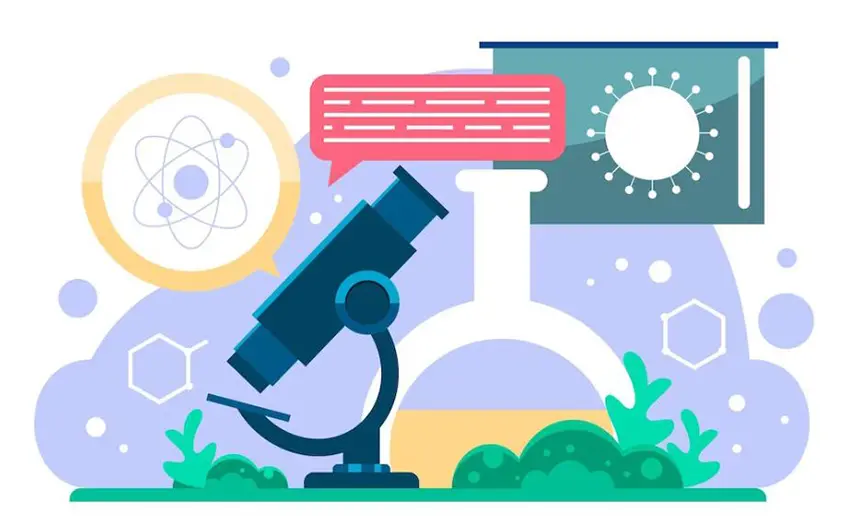Biology knowledge refers to the understanding of living organisms and their interactions with the environment. It encompasses various subfields such as molecular biology, genetics, ecology, anatomy, physiology, and evolutionary biology.
Having knowledge in biology is important because it allows individuals to:
Understand life processes: Biology helps explain the fundamental processes that occur in living organisms, including growth, reproduction, metabolism, and homeostasis.
Grasp the diversity of life: Biology provides insights into the vast array of organisms on Earth, from microorganisms to plants, animals, and humans, and the unique adaptations they possess.
Comprehend genetics and heredity: Biology helps explain the principles of inheritance, DNA structure, gene expression, and genetic variations, which are crucial in fields such as medicine, agriculture, and conservation.
Explore ecosystems and environmental interactions: Biology allows individuals to understand the relationships between organisms and their environment, including ecological dynamics, conservation, and the impact of human activities.
Article outline
- Part 1: 30 biology trivia quiz questions & answers
- Part 2: Download biology trivia questions & answers for free
- Part 3: Free online quiz making tool – OnlineExamMaker

Part 1: 30 biology trivia quiz questions with multiple-choice answers
1. What is the largest organ in the human body?
a) Liver
b) Brain
c) Skin
d) Heart
Answer: c) Skin
2. Which organelle is responsible for producing energy in a cell?
a) Mitochondria
b) Nucleus
c) Golgi apparatus
d) Endoplasmic reticulum
Answer: a) Mitochondria
3. What is the process by which plants convert sunlight into food?
a) Respiration
b) Photosynthesis
c) Fermentation
d) Digestion
Answer: b) Photosynthesis
4. Which blood type is considered the universal donor?
a) A
b) B
c) AB
d) O
Answer: d) O
5. Which scientist is known as the “Father of Genetics”?
a) Isaac Newton
b) Albert Einstein
c) Charles Darwin
d) Gregor Mendel
Answer: d) Gregor Mendel
6. What is the chemical symbol for potassium?
a) Fe
b) K
c) Pt
d) Hg
Answer: b) K
7. Which is the smallest unit of life?
a) Cell
b) Tissue
c) Organ
d) Organism
Answer: a) Cell
8. What is the process by which water evaporates from the leaves of plants?
a) Transpiration
b) Evaporation
c) Condensation
d) Precipitation
Answer: a) Transpiration
9. Which gas is most abundant in the Earth’s atmosphere?
a) Nitrogen
b) Oxygen
c) Carbon dioxide
d) Hydrogen
Answer: a) Nitrogen
10. What is the powerhouse of the cell?
a) Ribosome
b) Lysosome
c) Chloroplast
d) Mitochondria
Answer: d) Mitochondria
11. Which part of the flower produces pollen?
a) Stamen
b) Pistil
c) Petal
d) Sepal
Answer: a) Stamen
12. Which is the largest mammal on Earth?
a) Elephant
b) Blue whale
c) Giraffe
d) Hippopotamus
Answer: b) Blue whale
13. What is the process by which a caterpillar transforms into a butterfly?
a) Metamorphosis
b) Reproduction
c) Germination
d) Photosynthesis
Answer: a) Metamorphosis
14. What is the main function of red blood cells?
a) Transport oxygen
b) Fight infection
c) Produce antibodies
d) Digest food
Answer: a) Transport oxygen
15. Which is the largest bone in the human body?
a) Skull
b) Femur
c) Humerus
d) Tibia
Answer: b) Femur
Part 2: Download biology trivia questions & answers for free
Download questions & answers for free
16. What is the scientific name for the human thumb?
a) Pollex
b) Index
c) Digitus primus
d) Manus
Answer: a) Pollex
17. What is the smallest unit of a chemical element?
a) Proton
b) Electron
c) Neutron
d) Atom
Answer: d
) Atom
18. Which sense do humans rely on most for gathering information about their environment?
a) Sight
b) Smell
c) Hearing
d) Taste
Answer: a) Sight
19. Which hormone is responsible for controlling blood sugar levels?
a) Insulin
b) Estrogen
c) Testosterone
d) Thyroxine
Answer: a) Insulin
20. What is the process by which plants release water vapor through their leaves?
a) Osmosis
b) Diffusion
c) Transpiration
d) Respiration
Answer: c) Transpiration
21. Which gas is produced during photosynthesis?
a) Oxygen
b) Carbon dioxide
c) Nitrogen
d) Methane
Answer: a) Oxygen
22. What is the largest part of the human brain?
a) Cerebrum
b) Cerebellum
c) Brainstem
d) Hypothalamus
Answer: a) Cerebrum
23. Which type of muscle is found in the walls of blood vessels?
a) Cardiac muscle
b) Skeletal muscle
c) Smooth muscle
d) Striated muscle
Answer: c) Smooth muscle
24. What is the scientific name for the process of cell division?
a) Meiosis
b) Mitosis
c) Replication
d) Cytokinesis
Answer: b) Mitosis
25. Which part of the human digestive system is responsible for absorbing water from digested food?
a) Stomach
b) Small intestine
c) Large intestine
d) Esophagus
Answer: c) Large intestine
26. Which vitamin is synthesized in the skin when exposed to sunlight?
a) Vitamin A
b) Vitamin B12
c) Vitamin C
d) Vitamin D
Answer: d) Vitamin D
27. Which is the largest gland in the human body?
a) Liver
b) Pancreas
c) Kidney
d) Thyroid
Answer: a) Liver
28. What is the study of heredity and variation in organisms called?
a) Genetics
b) Ecology
c) Evolution
d) Botany
Answer: a) Genetics
29. Which structure connects the muscles to the bones in the human body?
a) Ligament
b) Tendon
c) Cartilage
d) Joint
Answer: b) Tendon
30. Which part of the human eye controls the amount of light entering the eye?
a) Pupil
b) Cornea
c) Retina
d) Lens
Answer: a) Pupil
Part 3: Best online quiz making softwar – OnlineExamMaker
OnlineExamMaker offers an extensive question bank with categorized questions, enabling users to easily search and select relevant questions for their quizzes. It saves time and ensures a rich repository of assessment items. The software supports a wide range of question types, including multiple-choice, true/false, short answer, and essay questions. This allows for diverse and comprehensive assessments to evaluate different types of knowledge and skills.
Create Your Next Quiz/Exam with OnlineExamMaker